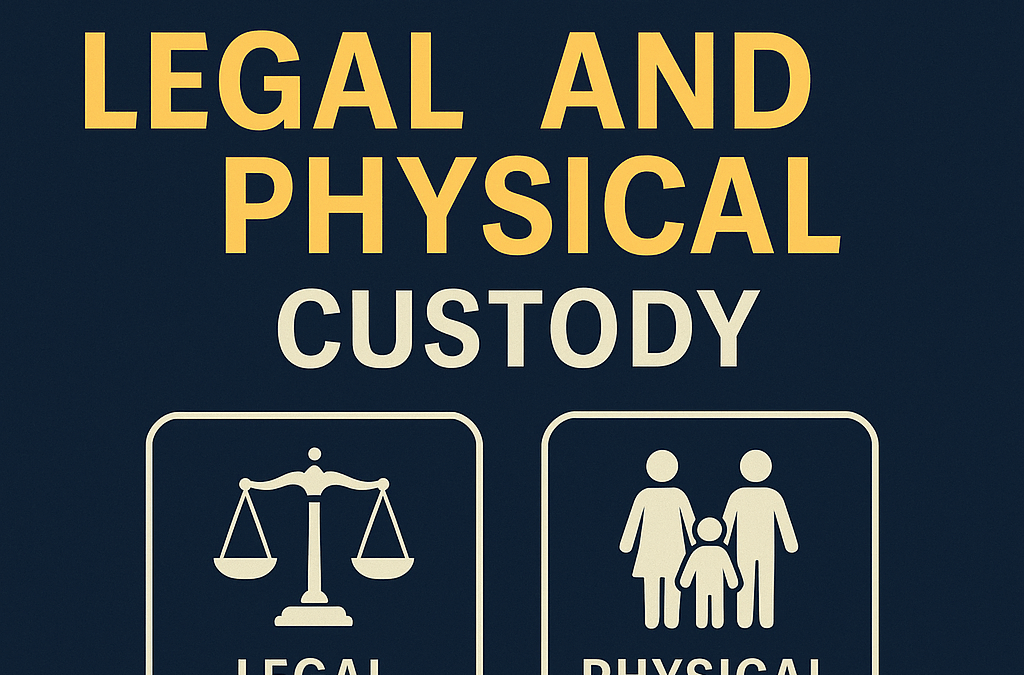Understanding Custody in Georgia: Why It Matters
When parents separate, one of the biggest concerns is: What happens with the kids? Custody decisions are more than just who the child lives with. In Georgia, there are two types of custody—legal custody and physical custody—and they each serve different purposes.
Knowing the difference can help you protect your role as a parent and avoid confusion down the road.
What Is Legal Custody?
Legal custody gives a parent the right to make important decisions about a child’s life, including:
- Education (what school they attend)
- Medical care (which doctors or treatments)
- Religious upbringing
- Extracurricular activities
In Georgia, courts often award joint legal custody, meaning both parents share in these decisions. However, one parent is usually given final decision-making authority for each area—just in case they can’t agree.
Example: You and your co-parent both have legal custody, but you’re assigned final say on medical decisions.
What Is Physical Custody?
Physical custody is about where the child lives and who cares for them on a day-to-day basis.
- Primary physical custody means the child lives with one parent most of the time.
- Joint physical custody typically involves a more balanced schedule, though not always 50/50.
Even in joint physical custody, the child may still spend more nights with one parent. That parent is often considered the custodial parent, which can impact things like school enrollment or claiming the child for tax purposes.
Can You Have One Without the Other?
Yes. You might share legal custody but not physical custody. For example:
- One parent could have sole physical custody, while both share legal custody.
- A parent might have supervised physical time but still help make legal decisions.
This distinction is important when creating parenting plans or negotiating terms.
How Do Georgia Courts Decide Custody?
Georgia uses the “best interest of the child” standard. The court will consider:
- Each parent’s involvement in the child’s life
- Stability of the home environment
- The child’s needs and preferences (especially if over 14)
- History of domestic violence or substance abuse
You’ll also be required to submit a parenting plan, detailing how you and the other parent will handle time-sharing, communication, and responsibilities.
Why the Difference Matters
Here’s why understanding legal vs. physical custody matters:
- It affects child support calculations
- It shapes your parenting schedule
- It defines decision-making authority in key areas
- It can impact future modifications to custody orders
Final Thoughts
Custody arrangements can be emotionally and legally complex—but they don’t have to be overwhelming. Understanding your options and how Georgia law defines each type of custody is the first step toward building a stable plan for your child’s future.
Whether you’re drafting an agreement or facing a custody dispute, having a clear understanding of legal and physical custody will empower you to make better decisions.
Need Help with a Custody Case?
At Catherine Verdery Ryan, we help families across Augusta, Richmond, Columbia, Burke, and surrounding counties navigate custody matters with care, clarity, and confidence. Whether you’re filing for custody or need to modify an existing order, we’re here to help.
Schedule a consultation or call us today to get started.

